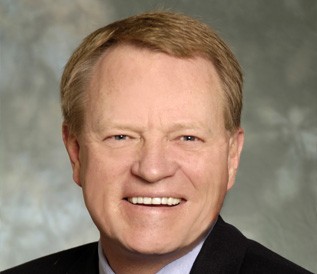Small paper this week and lots to write about, so three columns in one space.
I think Clarence Mumford made a gutsy move when he turned down the original offer from federal prosecutors and got a better deal. Mumford is the confessed “ringleader” in a scheme to hire test-fakers to stand in for test-takers on teacher certification tests in West Tennessee, Mississippi, and Arkansas for more than 15 years.
I don’t think Mumford, 59, is a “good guy” by any means, but I don’t buy him as Public Enemy Number One in education either. Now, he’s looking at a possible seven-year sentence, but U.S. district judge John Fowlkes, a newcomer to the federal bench, will make the call in May. Mumford’s case got national attention.
There is so much cheating in education at all levels that it boggles the mind: graduation rates and TCAP scores rigged in Memphis schools, teachers in Atlanta holding parties to rig student test scores, college athletes getting stand-ins to take their entrance exams and write their papers, students at elite schools cheating on entrance exams. Very little of this results in criminal prosecution.
Mumford’s clients were twice dumb. They feared they would fail or actually did fail the PRAXIS exam to get certification — some multiple times — and they paid Mumford $1,000 or more to hire a test-faker. Test monitors became suspicious when they saw blatantly fake IDs and the same test-faker at two sessions in the same day at the same place.
Mumford made some money. Using government figures, it works out to less than $10,000 a year if you prorate it. He corrupted at least one young teacher he was supposed to mentor. The children in classes taught by unqualified teachers suffered.
If Mumford had exercised his right to a trial and lost, he could have gotten, in effect, a life sentence. Tough call for Fowlkes.
I think the phrase “school choice” resonates more with parents than “world-class school system.”
The optional schools lineup and lottery process are being sorted out by Memphis City Schools, which won’t have numbers to analyze until later this week. What we know is that at least 2,000 parents applied, including hundreds who camped out for one or more nights to assure their spots in the most desirable schools.
Memphis is not the only urban district that lets parents take matters into their own hands to some extent when it comes to securing spots in magnet schools. Newspapers in Cincinnati and Dallas report parent campouts. In Nashville, spots are determined by a lottery among applicants who meet rigorous academic requirements. Memphis uses a lottery for only 20 percent of its spots in optional schools within schools.
Legislators in Tennessee, Arkansas, and Mississippi are dealing with the issues of charter schools, and federal courts in Memphis, Nashville, and Little Rock have school desegregation cases on their dockets. Our merger is unique, but not the underlying issues.
The Unified Shelby County School Board has an impossible task. Unity and world-class are lofty ideals, but the reality is fragmentation, more school choices than ever, and a scramble.

If you’re a frequent flyer and a member of the Airport Authority like my friend Jack Sammons, then maybe this week’s announcement of four more AirTran flights is “a home run.” I see it as a single.
The news is certainly welcome in the sense that it reverses the trend of declining passenger service at Memphis International Airport. But if this is a homer, then what would we call restoration of the Amsterdam flight or even a fraction of the flights Delta has taken away from Memphis in recent years?
Memphians fall into three categories when it comes to flying: time-is-money business travelers and frequent flyers at the mercy of Delta, recreational travelers who can cherry-pick their destinations and dates, and a lot of people who fly rarely, if ever.
One Southwest Airlines executive supposedly said, “The more flights we take, the more we get.” As if plane tickets are movies.
They’re not. Even “cheap” tickets are expensive, and flights are full, attendants scarce, seats cramped, delays likely, fees mount up, and hub connections can be a hassle. Glamorous it ain’t.
The Little Rock and Nashville alternatives have never made any sense to me, but I guess it looks different to a family of four. If it comes, the salvation of the underused Memphis airport and airports such as Baltimore-Washington International and Midway in Chicago will be their convenience and a drastic reduction in the cost of jet fuel.